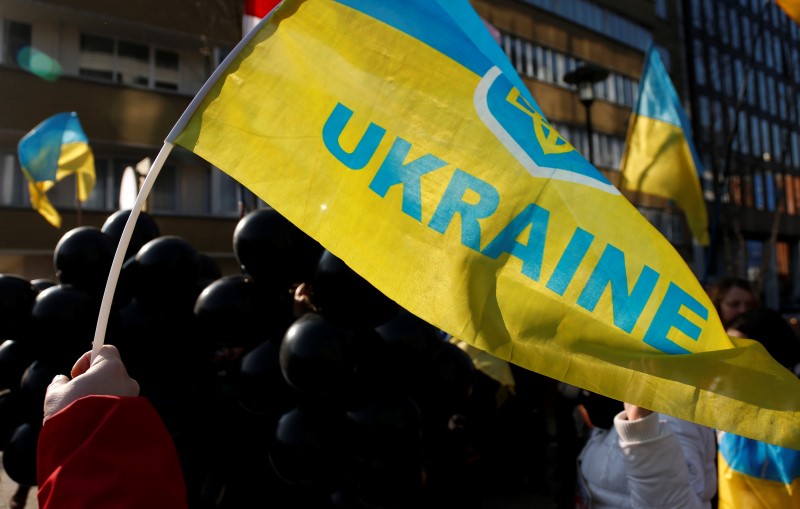News from the Financial Associated Press, April 20 (edited by Xiaoxiang)Since last weekend, the turmoil surrounding the unilateral announcement of the import ban on Ukrainian agricultural products by many countries in Central and Eastern Europe has been aroused. Although the European Union has said that the actions of these countries may be illegal, but now under pressure from these Central and Eastern European member states, EU officials are planning to make a compromise.
According to local media citing EU officials,The European Union is preparing to offer 100 million euros ($109.32 million) in compensation to farmers in the five countries that border Ukraine – Poland, Hungary, Bulgaria, Romania and Slovakia – and plans to impose restrictions on imports of Ukrainian agricultural products.
A senior EU official said that in response to the large number of Ukrainian wheat, corn, rapeseed and sunflower seeds stranded in some member states, the EU plans to take “precautionary measures” on the basis of existing trade rules to protect the safety of EU producers. Benefit.
It is reported that the measures being discussed by the EU will ban the import of these products into the five countries until the end of June, except for the re-export of goods through these countries to other EU member states or parts of the world.
Separately, the European Commission, which oversees trade policy in the 27-nation bloc, plans to launch an investigation to determine whether measures need to be taken on other sensitive goods.
EU Trade Commissioner Valdis Dombrovskis discussed the plans on Wednesday with the trade ministers of Bulgaria, Hungary, Poland, Romania and Slovakia, as well as Ukraine. “We stress the importance of quickly following common EU approaches, rather than unilateral solutions, to avoid multiple bans and solutions that put the internal market at risk,” Dombrowski said in a joint statement.
However, the EU also emphasized that the EU will take the above actions only if the governments of Central and Eastern European countries abandon the current “food ban”.
Previously, in a letter to the leaders of Poland, Hungary, Romania, Slovakia and Bulgaria, President of the European Commission Ursula von der Leyen had promised to put the problem of Ukrainian grain imports as the EU’s highest priority, on the basis of existing trade rules. Take precautionary measures to alleviate the deteriorating situation faced by producers of wheat, corn, rapeseed and sunflower seeds in these countries.
The four countries have unilaterally issued a “food ban” against Ukraine
There is no doubt that the new measures planned by the European Commission are a “helpless” concession to a series of unilateral actions by CEE member states that have challenged the EU’s core powers in trade policy.
Among the above-mentioned five Central and Eastern European countries, except for Romania, other countries have currently issued import bans on Ukrainian agricultural products.
After the Russia-Ukraine conflict last year, the EU canceled tariffs and quotas on agricultural products from Ukraine, a big agricultural country. However, due to unresolved follow-up issues such as logistics, a large number of Ukrainian agricultural products can only be sold in Eastern European countries, and they have begun to systematically disrupt the grain market transactions of member states, triggering protests from farmers in Poland and other countries.
Poland, Hungary, Bulgaria, Romania, and Slovakia jointly issued an open letter to the European Commission in March, calling for an assessment and response to the impact of Ukrainian agricultural products on their respective national agriculture, suggesting that the EU consider imposing tariffs on agricultural products from Ukraine. However, the EU has not taken any new actions since then.
Fearing that the world could be plunged into famine, the EU’s mechanism for removing tariffs and quotas on Ukrainian agricultural products was supposed to last until next June. Von der Leyen said in a letter sent to the five countries this week that the EU still hopes to extend the wartime trade mechanism with Ukraine after it expires, but the revised version will have stronger clauses that allow the EU to expand more in the future. Quickly take measures to protect their own market.
In addition, an EU official also said that Brussels currently plans to organize trucks, trains and barges to transport Ukrainian grain to the port and then to countries in need. And will increase the capacity of the Danube.
However, whether this plan is feasible is still facing a huge question. Many business groups refuse to pay for this transport because it costs more than traditional seaborne trade through the Black Sea corridor.
